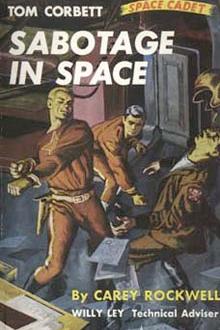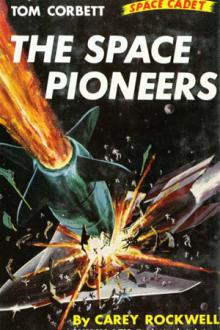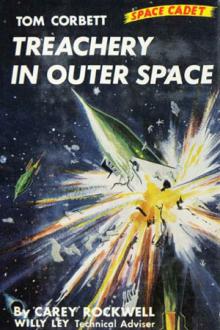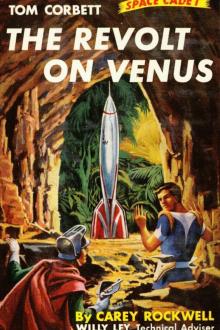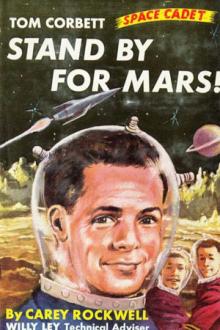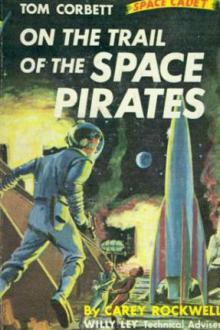Danger in Deep Space
Book Excerpt
The Polaris unit was well known among other cadet units, and they were greeted heartily from all sides. As Astro and Roger joked with various cadet units, forming up in front of the slidestairs leading down to the mess halls, Alfie turned to take a slidestairs going up. Suddenly he stopped, grabbed Tom by the shoulders, and whispered in his ear. Just as abruptly he turned and raced up the ascending slidestairs.
"What was that about?" asked Roger, as Tom stood staring after the little cadet.
"Roger--he--he said our next assignment would be one of the great experiments in space history. Something to be done that--that hasn't ever been done before!"
"Well, blast my jets!" said Astro. "What do you suppose it is?"
"Ahhh," sneered Roger, "I'll bet it's nothing more than takin
Editor's choice
(view all)Popular books in Science Fiction, Post-1930, Young Readers, Fiction and Literature
Readers reviews
R: * * * *
Plot bullets
Second in the Tom Corbett space cadet series. Having graduated the Space Academy and proven themselves in \'Stand By For Mars!\' the cadets, now Spacemen, have made a \'\'can do name for themselves.\'
This time Tom, Astro, Rodger and the ship Polaris, are assigned to test a new communications protocol.
Two men have ideas of their own in the same area of space. Copper has become a scarce metal and these men can make millions by getting to a small moon first.
Their mining enterprise is not illegal, but they are barred from operating a ship and use criminal methods to gain there ends.
The space communications project becomes of secondary importance as the two groups clash.
The final task is to try to bring back that small copper moon in tact for the benefit of all. The riggers of space and the hazards of moving a small moon, add to the \'Dangers in Deep Space\'.
These Tom Corbett, stories became popular on radio,
TV movies and comic books.
- Upvote (0)
- Downvote (0)
It's easy to see why Rockwell is ignored when people discuss SF writers. Compare him to H Beam Piper, who wrote at the same time, and see the difference. You can't even compare him to Robert Heinlein, who also wrote "juveniles" in his early years. His ignorance of science makes reading his stories difficult.
Sad that these are no longer in print, but not sad that they are now available as ebooks.
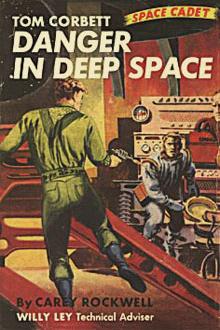
 Free Download
Free Download





















